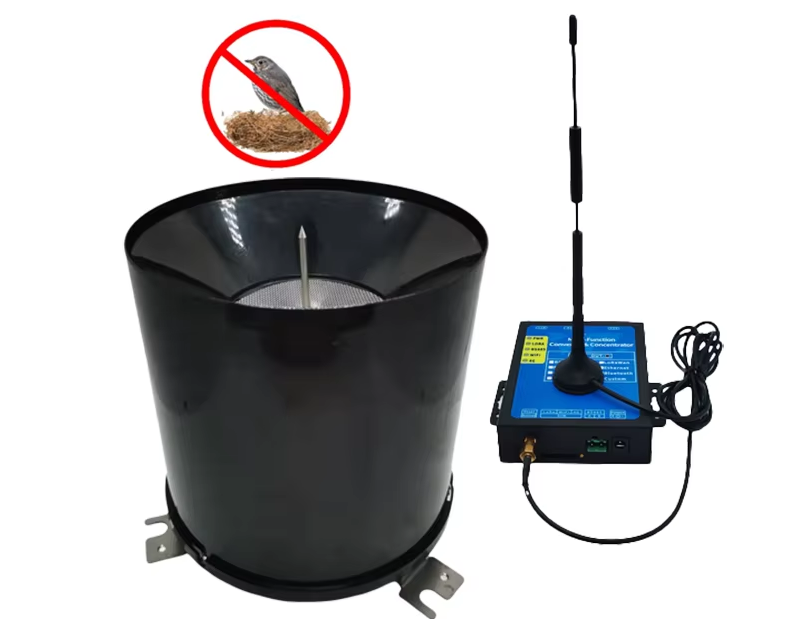Tanggal: 18 Februari 2025
Lokasi: Sydney, Australia
Di lanskap pertanian Australia yang luas dan beragam, di mana kekeringan dan banjir dapat menentukan keberhasilan tanaman dan mata pencaharian, alat pengukur curah hujan terbukti menjadi alat yang sangat diperlukan bagi para petani. Seiring perubahan iklim terus memengaruhi pola cuaca, perangkat sederhana namun efektif ini menjadi semakin penting untuk pengambilan keputusan yang tepat di bidang pertanian.
Pentingnya Pengukuran Curah Hujan yang Akurat
Alat pengukur curah hujan digunakan di seluruh negeri untuk memberikan pengukuran curah hujan yang tepat. Data penting ini memberdayakan petani untuk mengoptimalkan praktik irigasi, menjadwalkan penanaman dan panen, dan pada akhirnya meningkatkan hasil panen. Menurut sebuah studi baru-baru ini yang dilakukan oleh Biro Ekonomi dan Ilmu Pertanian dan Sumber Daya Australia (ABARES), pengukuran curah hujan yang tepat menggunakan alat pengukur curah hujan dapat meningkatkan produktivitas tanaman hingga 20%, yang secara signifikan berdampak pada profitabilitas pertanian.
Dr. Emily Jans, seorang ahli agronomi di Universitas Melbourne, menyoroti dampak teknologi dalam praktik pertanian tradisional. “Memahami pola curah hujan sangat penting bagi petani. Dengan data yang akurat, mereka dapat memprediksi kebutuhan air, mengurangi pemborosan, dan memilih waktu terbaik untuk kegiatan di lahan pertanian,” jelasnya. “Alat pengukur curah hujan memainkan peran penting dalam mengelola iklim Australia yang beragam—dari daerah tropis basah di Queensland hingga daerah kering di Australia Barat.”
Meningkatkan Pengelolaan Kekeringan
Seiring Australia menghadapi kondisi kekeringan yang semakin parah, peran alat pengukur curah hujan menjadi semakin penting. Petani bergantung pada data ini untuk membuat keputusan penting tentang konservasi air, pilihan tanaman, dan pengelolaan ternak. Departemen Industri Primer New South Wales melaporkan bahwa informasi curah hujan yang tepat waktu memungkinkan petani untuk secara proaktif menanggapi kondisi kering, memastikan mereka memaksimalkan sumber daya mereka dan menjaga keberlanjutan.
Di wilayah yang sangat terdampak kekeringan, seperti Cekungan Murray-Darling, para petani mengintegrasikan sistem pengukur curah hujan canggih dengan sensor kelembaban tanah dan teknologi prakiraan cuaca. Pendekatan holistik ini memungkinkan pertanian yang lebih responsif dan adaptif yang dapat menahan tekanan perubahan iklim.
Mendukung Respons Terhadap Banjir
Sebaliknya, alat pengukur curah hujan sama pentingnya untuk pengelolaan banjir di beberapa wilayah Australia yang mengalami curah hujan lebat yang tidak menentu. Data curah hujan yang akurat membantu pihak berwenang mengeluarkan peringatan banjir tepat waktu dan membantu petani dalam melaksanakan rencana darurat yang sesuai untuk melindungi tanaman dan ternak. Biro Meteorologi telah menekankan bagaimana sistem peringatan dini yang dikalibrasi dengan data alat pengukur curah hujan yang tepat dapat menyelamatkan nyawa dan mengurangi kerugian ekonomi selama peristiwa cuaca ekstrem.
Upaya Komunitas dan Sains Warga
Di luar penggunaan institusional, inisiatif pemantauan curah hujan berbasis komunitas telah mendapatkan daya tarik di seluruh pedesaan Australia. Jaringan yang dipimpin oleh sukarelawan mendorong komunitas pertanian untuk memasang alat pengukur curah hujan mereka sendiri, menumbuhkan budaya kerja sama dan tanggung jawab bersama. Platform seperti Rainfall Australia telah muncul, memungkinkan petani untuk menyumbangkan data mereka, meningkatkan kualitas dan cakupan informasi curah hujan yang tersedia bagi semua petani di suatu wilayah.
Kesimpulan
Seiring dampak perubahan iklim yang terus menimbulkan tantangan bagi pertanian Australia, pentingnya alat pengukur curah hujan tidak dapat diremehkan. Instrumen ini menyediakan data penting yang mendukung pengelolaan kekeringan, penanggulangan banjir, dan produktivitas pertanian secara keseluruhan. Dengan investasi berkelanjutan dalam teknologi pertanian dan keterlibatan masyarakat, alat pengukur curah hujan akan tetap menjadi landasan praktik pertanian berkelanjutan di seluruh Australia, membantu melindungi masa depan pertanian negara ini dari iklim yang tidak pasti.
Dengan memanfaatkan alat-alat penting ini, para petani tidak hanya meningkatkan ketahanan mereka sendiri tetapi juga membangun sistem pangan yang lebih aman bagi seluruh warga Australia. Dalam lingkungan yang selalu berubah ini, alat pengukur curah hujan bukan hanya alat ukur; alat ini merupakan penyelamat bagi para petani dalam menghadapi pola cuaca kompleks di benua yang terkenal dengan kondisi ekstremnya.
Untuk informasi lebih lanjut tentang sensor hujan,
Silakan hubungi Honde Technology Co., LTD.
Email: info@hondetech.com
Situs web perusahaan: www.hondetechco.com
Waktu posting: 18 Februari 2025



